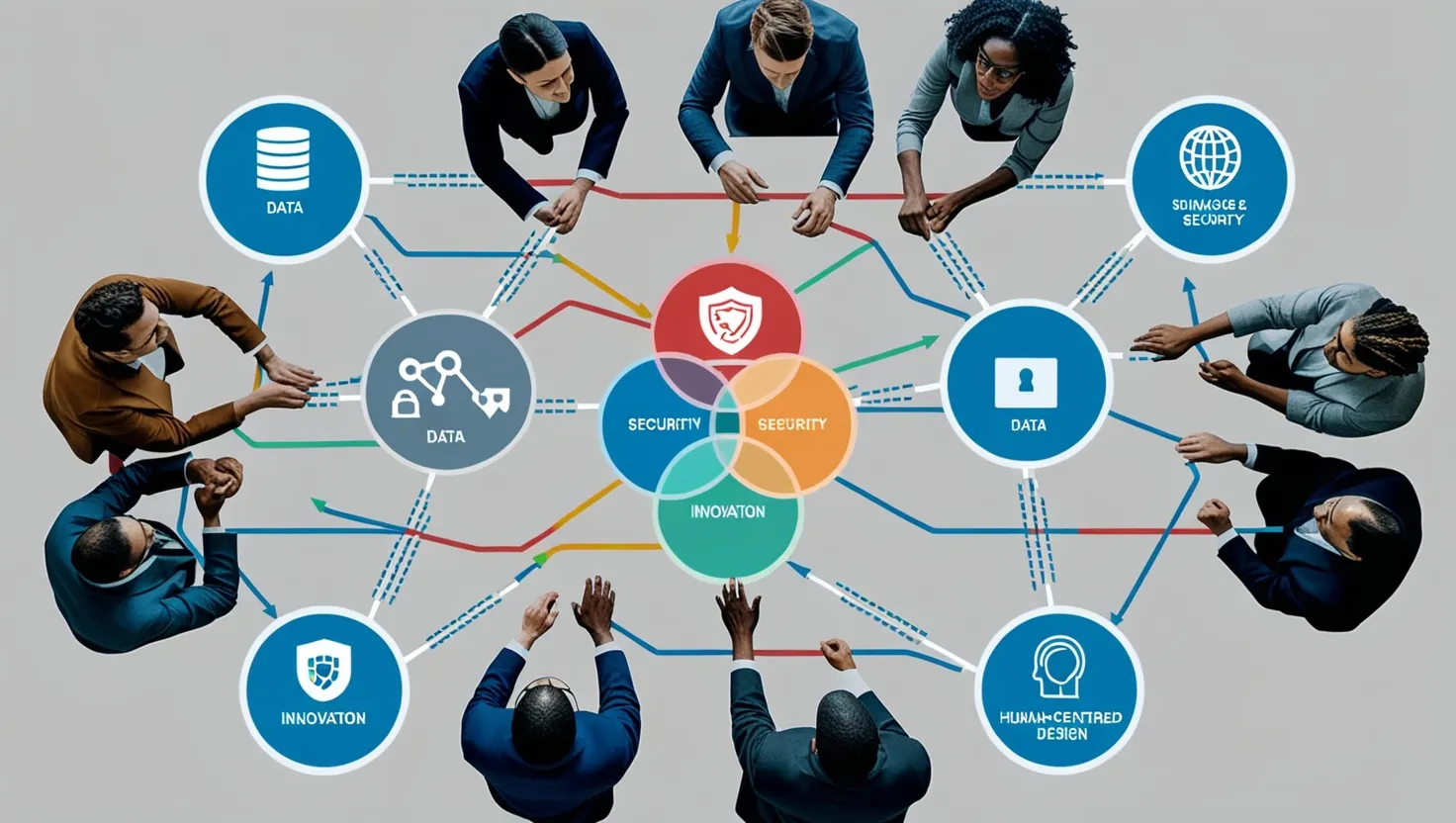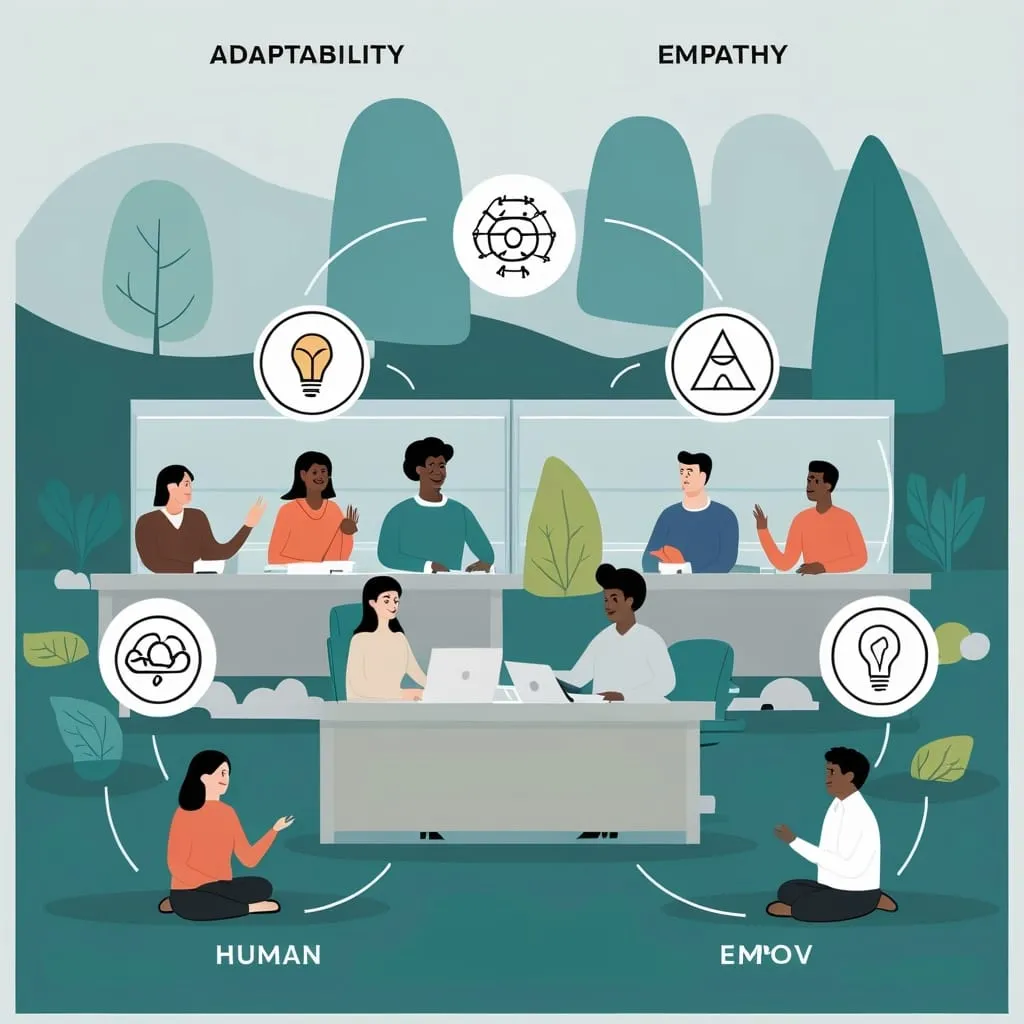Emotional Intelligence: The Secret Weapon of Successful Finance Leaders
In the fast-paced world of finance, where numbers reign supreme, there's a hidden superpower that can elevate good leaders to greatness. It's not about complex algorithms or cutting-edge financial strategies. It's all about people. Enter emotional intelligence (EI) - the secret sauce that transforms average managers into exceptional leaders.
So, what's the big deal about emotional intelligence? Well, imagine having the ability to read a room like a book, to understand what makes your team tick, and to navigate tricky situations with the grace of a seasoned diplomat. That's EI in a nutshell. It's about recognizing and managing your own emotions, as well as those of others. It's like having a built-in GPS for human interactions.
Let's break it down a bit. EI isn't just one thing - it's a whole toolkit of skills. There's self-awareness (knowing yourself inside out), self-regulation (keeping those pesky emotions in check), empathy (walking in someone else's shoes), motivation (finding that inner fire), and social skills (being a people person). It's like being the Swiss Army knife of leadership.
Now, self-awareness is where it all begins. It's about knowing yourself better than your favorite coffee order. What makes you tick? What pushes your buttons? Once you've got that figured out, you're halfway there. Imagine being in a heated meeting, tempers flaring, and you're able to take a mental step back, take a deep breath, and respond with the cool-headedness of a cucumber. That's self-awareness in action.
But here's the kicker - self-awareness isn't something you're born with. It's like a muscle; the more you work it, the stronger it gets. Start by taking a moment each day to check in with yourself. How are you feeling? Why are you feeling that way? It's like becoming your own personal therapist, minus the couch.
Now, let's talk about empathy - the secret ingredient that turns good leaders into great ones. It's about being able to read people like a book, understanding their feelings and perspectives. In the world of finance, where stress levels can be through the roof, empathy can be a game-changer.
Picture this: one of your team members is struggling to meet a deadline. Instead of breathing fire and demanding results, an empathetic leader would take a moment to understand what's going on. Maybe they're dealing with personal issues, or perhaps they're overwhelmed with their workload. By showing understanding and offering support, you're not just solving a problem - you're building trust and loyalty.
Communication is another area where emotional intelligence shines. It's not just about what you say, but how you say it. An emotionally intelligent leader can read the room, pick up on non-verbal cues, and tailor their message accordingly. It's like being a communication chameleon, adapting your style to suit different situations and people.
Think about delivering bad news, like budget cuts or layoffs. An emotionally intelligent leader would approach this with sensitivity and transparency. They'd explain the reasons behind the decision, listen to concerns, and offer support where possible. It's about softening the blow while maintaining honesty and respect.
When it comes to decision-making, emotional intelligence is like having a supercomputer in your brain. It's not just about crunching numbers and analyzing data. It's about considering the human aspect of every decision. How will this affect the team? What are the emotional implications? By taking these factors into account, you're making more balanced and considerate decisions.
For instance, when deciding on a new project, an emotionally intelligent leader wouldn't just look at the potential profits. They'd consider the workload on the team, the stress levels, and how it aligns with everyone's goals and values. It's about seeing the bigger picture, beyond just the bottom line.
Motivation is another area where emotional intelligence plays a starring role. It's not just about dangling carrots or wielding sticks. It's about understanding what truly drives your team. An emotionally intelligent leader can tap into their team's intrinsic motivation, helping them see the purpose and impact of their work.
In the finance world, this might mean helping your team understand how their financial reports contribute to the company's overall strategy. It's about connecting the dots between their day-to-day tasks and the bigger picture. When people understand the 'why' behind their work, they're more likely to give it their all.
Now, let's talk about the elephant in the room - conflict. In any team, disagreements are bound to happen. But here's where emotional intelligence really shines. An emotionally intelligent leader can navigate conflicts like a pro, diffusing tension and finding solutions that work for everyone.
It's about approaching conflicts with empathy and understanding. Instead of taking sides or brushing issues under the carpet, an emotionally intelligent leader listens actively, acknowledges feelings, and works towards a resolution that respects everyone's needs. It's like being a relationship counselor for your team.
But emotional intelligence isn't just about individual interactions. It's about creating a positive work culture. When leaders lead with emotional intelligence, it sets the tone for the entire team. It creates an environment where people feel valued, heard, and motivated. It's like planting seeds of positivity that grow into a thriving workplace garden.
In a finance team, this positive culture can lead to all sorts of good things - better job satisfaction, improved communication, and less conflict. Imagine a workplace where people actually look forward to coming to work, where ideas flow freely, and where problems are solved collaboratively. That's the power of emotional intelligence in action.
Now, here's the million-dollar question - can emotional intelligence be developed? Absolutely! Like any skill, it takes practice and dedication, but it's totally doable. Here are a few tips to get you started:
First, get to know yourself. Take time to reflect on your emotions and how they impact your behavior. It's like becoming your own personal scientist, observing and analyzing your emotional responses.
Next, work on managing those emotions. When you feel your blood pressure rising, take a step back. Count to ten, take a deep breath, or go for a quick walk. It's about responding thoughtfully rather than reacting impulsively.
Practice empathy by really listening to your team members. Try to see things from their perspective. It's like putting on someone else's glasses - you might be surprised at how differently the world looks.
Understand what motivates you and your team. Set clear goals and provide regular feedback. It's about creating a roadmap for success and cheering each other on along the way.
Finally, work on your social skills. Pay attention to non-verbal cues and adapt your communication style to different team members. It's like learning to speak multiple languages, but instead of French or Spanish, you're learning the language of human interaction.
Let's bring this to life with a real-world example. Imagine you're leading a finance team working on a critical project. The deadline is looming, stress levels are high, and conflicts are starting to bubble up. An emotionally intelligent leader would recognize these emotions and take steps to address them.
They might start by acknowledging the team's feelings and listening to their concerns. They could involve the team in problem-solving, asking for input on how to move forward. They might even reorganize workloads or bring in additional resources to ease the pressure.
By approaching the situation with empathy and understanding, they're not just solving a problem - they're building trust, boosting morale, and creating a more resilient team. It's like turning a potential crisis into an opportunity for growth and bonding.
In the end, emotional intelligence isn't about being soft or touchy-feely. It's about being smart and strategic in how you deal with people. In the world of finance, where stress and pressure are part of the daily grind, emotional intelligence can be the difference between a good leader and a great one.
By developing your emotional intelligence, you're not just improving your leadership skills - you're creating a better work environment for everyone. You're building stronger relationships, managing conflicts more effectively, and making better decisions. You're creating a positive work culture that fosters satisfaction, communication, and collaboration.
Remember, in finance, it's not just about the numbers. It's about the people who make those numbers happen. And that's where emotional intelligence truly shines. So, why not give it a try? Your team (and your stress levels) will thank you for it.






